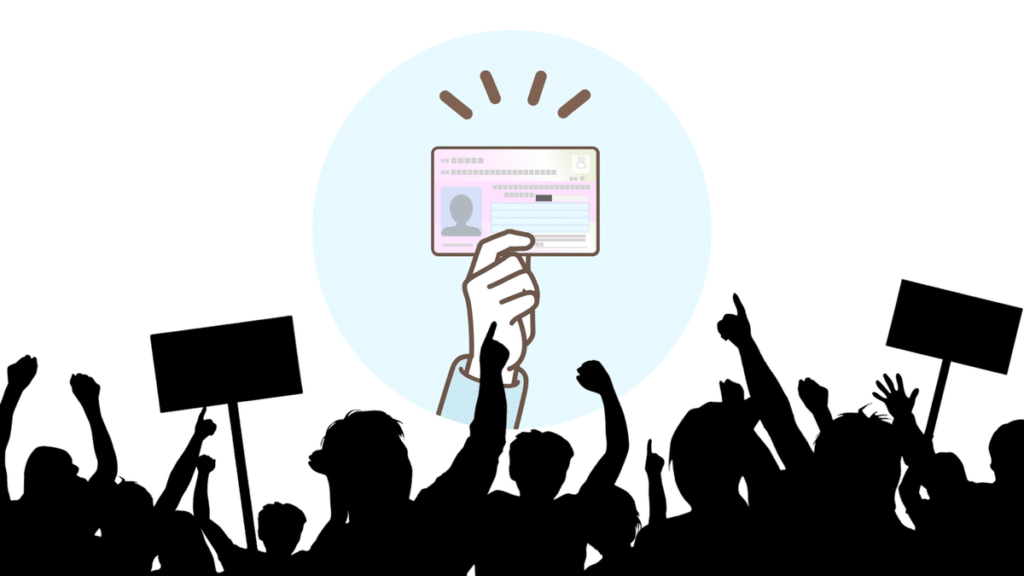[ad_1]
The Japanese government is pushing hard for universal acceptance of its new My Number system. But will a recent data leak and a growing chorus of objections slow it down?
What is My Number?

“My Number” is the folksy English name for Japan’s individual ID system. The goal is to unify government records for individuals across agencies. Up until now, Japan has relied on the family registry system (戸籍; koseki) as the source of truth for identities, which identifies individuals through multiple data points including birth date and family membership. Both Japanese citizens and foreign residents can obtain a My Number card.
I’ve written before about Japan’s struggles to shift to a national ID system. The current My Number system dates back to 2013 and was passed under the Abe Shinzo administration.
Several highly vocal groups in Japan have objected for years to such a system on principal. When Japan instituted its Juki Net database of residents in 1999, for example, activists tried to get the courts to declare it unconstitutional.
Goodbye, your health care card

Given this resistance, the Japanese government has made adoption of a My Number voluntary. As a result, adoption has been slow for years. When I wrote about My Number in 2021, only 39% of residents had requested a card.
The main reason people gave for not requesting a card? They didn’t need one! For residents, both their residence card and their national health insurance card serve as ID for nearly all life tasks.
However, that’s changing rapidly. For example, you can’t (as I recently discovered) send or receive international wire transfers in Japan without either a My Number or corporate registration number on file at your bank.
And now, the government’s found another way to make it inconvenient not to possess a My Number card. A new legal revision passed in March will eliminate the country’s national health insurance card entirely. Health insurance will instead be tied to one’s My Number card. The government’s goal is to eliminate the health care card entirely by 2024.
That doesn’t mean you have to have a My Number card. But if you refuse to get one, you’ll need to obtain a short-term health care certificate from your local ward or regional office that you must renew yearly.
Similar plans are afoot for unifying the My Number card with driver’s licenses.
On the carrot side of the carrot/stick equation, possessing a My Number card means you can conduct an increasing number of official procedures online. For example, foreign residents can use their My Number card to handle certain immigration-related procedures digitally. The number of government services that you can unlock online with the card will undoubtedly increase in the years to come.
Thanks to this push, more and more people are obtaining a My Number card. Japan’s Ministry of Internal Affairs and Communications says that 76.9% of residents have requested one as of April 2023. 69.8% of those requests have been fulfilled.
My Number’s crossed wires raise alarms

But the push for universal adoption has come with some concerning failures that have left residents of Japan wondering how safe their data is.
One high-profile problem involves proof of residence certificates, which you can print out at certain convenience stores. (Yes, you really can do anything at a combini.) Between March and May, four people reported that retrieving theirs gave them the residence certificate for a completely different person.
In another incident in Niigata, a resident attempted to retrieve their inkan certificate, which proves ownership of their official seal for documents. The resident said they received a certificate for an old seal they no longer used.
Finally, in at least five confirmed cases, residents who used their My Number card for health care discovered their cards were associated with a different person. That’s a pretty serious violation that grants unauthorized access to an individual’s personal medical information.
Japan’s Ministry of Health, Labor and Welfare (MHLW) says that some cases involve incorrect inputs at local offices. In other words, a manual data entry error. Digital Minister Kono Taro blamed the residency certificate problems on its implementor, Fujitsu Japan. Fujitsu and Kono say they’ve suspended the service until they can identify the issue’s root cause.
Is the government taking its responsibilities seriously?

Despite its reputation for high technology, much of Japanese business and government is still analog. Japanese banks typically run on paper forms, limiting what you can do at branch offices. Fax machines and physical seals are standard fixtures. Cashless payment options, which are now proliferating, lagged for years behind China and South Korea.
To its credit, Japan’s Digital Agency is working hard to change that. Minister Kono Taro is spear-heading a range of modernization initiatives – from digitizing hanko seals to getting rid of floppy disks.
But some experts worry the government is neglecting its responsibilities to citizens along the way. Shiratori Hiroshi, political science professor at Hosei University, says he thinks the problem is bigger than a few data entry misses.
“…the government is taking a light view to how its handling of personal information can influence an individual citizen’s life….I can’t deny the march towards digitization, but hearing all these ads light-heartedly repeating how you can use [your My Number card] makes me think they didn’t anticipate these accidents.”
The issues could damage further rollout of the My Number system and related digitization efforts. A survey by Japan’s Ministry of Internal Affairs and Communications found that the biggest blocker to digitization was security concerns. If the government can’t show that it’s taking citizen’s data seriously, its digital push could turn into a grind.
What to read next
Japan Still “Shackled” By Internet Explorter as Support Ends
Sources
マイナンバーカード交付状況について. Ministry of Internal Affairs and Communications
マイナカードの保険証一体化やマイナンバー利用拡大など閣議決定. Impress Watch
マイナカード、止まらぬトラブル 政治学者が危ぶむ「政府の勘違い」. Asahi Shimbun
マイナカードでトラブルが次々に…でも政府は責任逃れ このまま普及まっしぐらでいいのか. Tokyo Shimbun
マイナカード利用のコンビニ住民票交付 不具合で運用停止. ITmedia
「マイナカード」でトラブル 廃印処理済みの印鑑証明書がコンビニで交付される【新潟】. UX Niigata TV 21
マイナ保険証に「別人情報」5件確認、ひも付けの際に誤入力か…厚労相「一斉チェックする」. Yomiuri Shimbun
マイナカードのトラブルが相次ぐ 不信感が広がる. ITMedia
[ad_2]
Source link


